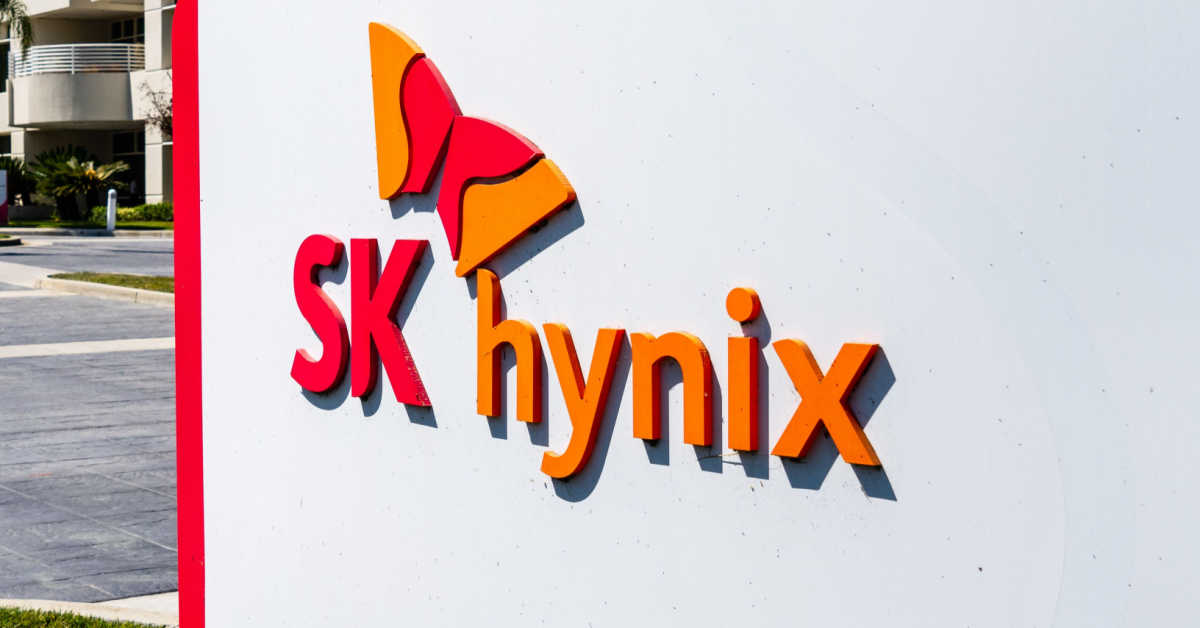SK Hynix Posts Surprise Profit After AI Boosts Memory Prices

Sorry to be the bearer of bad news, but South Korean memory-maker SK hynix has posted a surprise profit.
The biz secured Q4 revenue of ₩11.3 trillion ($8.46 billion) and ended up ₩346 billion ($259.4 million) in the black for the quarter. Analysts had expected a loss of around $150 million, joining losses posted in every quarter since Q3 2022.
Those nasty results were blamed on low consumer demand. This profit came from business demand for the memory needed to make AI work – DDR5 sales grew fourfold year on year, while HBM3 surged by five times last year's sales (helped by Nvidia being a big customer).
SK hynix also attributed its improved performance to "Continuous improvement in price environment."
That's an admission that prices for memory have risen – terrible news if you're planning server builds, as the cost of memory can often exceed the price of bare metal.
Execs had more bad news, predicting the advent of AI PCs (whatever they are) will spark a new wave of purchasing. The bill of materials for those machines will include more memory than was found in previous models, execs suggested, so your PC bills will also rise.
- Memory prices to dive in late 2022, says Gartner
- 2024 sure looks like an exciting year for datacenter silicon
- Beijing signals it may let Micron out of the penalty box in the Middle Kingdom
- Micron, SK-Hynix's shipping bandwidth-boosting LPDDR5 for on-device AI
Other bad news was that the memory-maker's Q4 turnaround wasn't enough to rescue its full financial year, which produced a net loss of ₩9.13 trillion ($6.8 billion) and a year-on-year revenue dip of 27 percent.
"We achieved a remarkable turnaround … thanks to our technological leadership in the AI memory space," declared SK hynix vice president and CFO Kim Woohyun. "We are now ready to grow into a total AI memory provider by leading changes and presenting customized solutions as we enter an era for a new leap forward."
That growth will see the memory-maker commence mass production of HBM3E, and keep working on its successor HBM4.
Investors were told of "increasing demand for high-performance DRAM" such as DDR5 and LPDDR5T, and of the firm's plans to "make its technological leadership stronger by preparing high-capacity server module MCRDIMM1 and mobile module LPCAMM22 to respond to ever-increasing demand for AI server and on-device AI adoption."
There's that strong demand again.
Also on the agenda is nailing emerging products like CXL, and further work to improve profitability.
These results are not the first sign of the memory market bouncing back from a couple of awful years. Taiwanese chipmaker TSMC recently warned it expects healthy growth in 2024.
The Register apologizes for all that bad news. Now go get some budget for memory before the news gets even better. ®
From Chip War To Cloud War: The Next Frontier In Global Tech Competition
The global chip war, characterized by intense competition among nations and corporations for supremacy in semiconductor ... Read more
The High Stakes Of Tech Regulation: Security Risks And Market Dynamics
The influence of tech giants in the global economy continues to grow, raising crucial questions about how to balance sec... Read more
The Tyranny Of Instagram Interiors: Why It's Time To Break Free From Algorithm-Driven Aesthetics
Instagram has become a dominant force in shaping interior design trends, offering a seemingly endless stream of inspirat... Read more
The Data Crunch In AI: Strategies For Sustainability
Exploring solutions to the imminent exhaustion of internet data for AI training.As the artificial intelligence (AI) indu... Read more
Google Abandons Four-Year Effort To Remove Cookies From Chrome Browser
After four years of dedicated effort, Google has decided to abandon its plan to remove third-party cookies from its Chro... Read more
LinkedIn Embraces AI And Gamification To Drive User Engagement And Revenue
In an effort to tackle slowing revenue growth and enhance user engagement, LinkedIn is turning to artificial intelligenc... Read more

